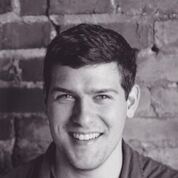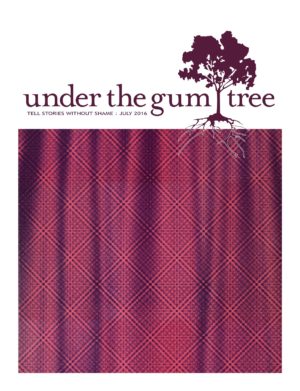Matt Young

Matt Young is a veteran, writer, and teacher. He lives in Olympia, Washington, teaches at Centralia College, and holds an MA in creative writing from Miami University. His work can be found in Yemassee, Word Riot, Tin House, River Teeth, and others.
When did you start writing and why? What inspires your writing now?
I wrote in high school—angst-ridden teenage stories inspired by whatever Stephen King novel I was reading, or I pumped out the occasional uniformed “Legalize Pot” long form essay for my school’s literary magazine. I didn’t write during the bulk of my time in the Marines until I got back in contact with an old childhood friend (who’s now my wife) during my third deployment to Iraq. I was trying to impress her so I tried writing a novella. It was a cross-country road trip companion story complete with a morose doomed protagonist, an other-dimensional creature dressed like Johnny Rotten, and a wise-cracking prostitute. It will never see the light of day.
After I got out of the Marines and started college at Oregon State I took some creative writing courses and found that writing gave me an outlet to work through my time in the military. I’d heard and read about veterans using writing to help them better understand war, so I thought that I’d write about my experiences and then be able to move past them, but that’s not how it works. At least not for me. It was (and is) re-traumatizing to confront those memories—to try and understand my identity, who I was and who I am—but I think in the face of trauma, reflection and honesty become so important for recovery. And as a witness I feel obligated to share my memories and contribute to that history.
The book of creative nonfiction I’ve been writing over the past three years (of which this story is a part) has been largely inspired by those feelings of obligation, but as an avid reader any kind of playfulness with form in fiction or nonfiction I come across gets my engine going. I’ve always been a movie and television fanatic, and I grew up reading comic books and sci-fi and horror novels—those frames and constructions have leached into my work. I love speculative fiction as well. It helps me recognize the uncanny in every day experiences and gives me inspiration to apply those frames to reality.
You illustrate the obligation you felt to follow orders and procedures. How do you feel that lack of control impacted your identity and how you approach the world?
I don’t think it was a lack of control—no one ever ordered us to place people in stress positions, that was a decision we made consciously for retribution, to balance what we saw as an off-kilter scale. We talked ourselves into believing we were following orders so we could treat people the way we did without much thought in the moment. I had the freedom to say no, to walk away, and our command encouraged us to say no to unlawful orders if they were given. But there wasn’t an order given, there was conscious choice made to hurt someone. We were trained to react to situations, but we were also trained that the situation dictates the reaction. This story illustrates our failure to recognize a changing situation.
Now, I feel I have more luxury to think about the situations I’m in, about my actions and how they’ll be perceived. I interrogate why I did something or why someone else acted a certain way. I try not to be reactionary. I’m suspicious of reactionary people. I know what it can lead to.
The piece has very little self-analysis yet still is able to present a critique of wartime behavior. Why did you structure the piece in this fashion?
I wanted the story to be immediate and horrible, and I wanted to situate the reader in a space where there was little room to think or breathe just as in that moment, so I went to the first person plural present tense. Adding reflection and analysis in that moment would’ve been dishonest, because it simply wasn’t there. A part of me also feels like analyzing that moment would read like an excuse for our actions when there simply isn’t any.
What significance does the title of the piece, “Equal and Opposite”, have for you?
“Equal and Opposite” is a nod to our use of disproportionate force and skewed sense of Old Testament justice.
What events do you think warrant a story or should be written about?
In terms of personal narrative I like reading stories different from my own. We read and tell stories to understand the world. I came back from inhumanity through literature and writing. I want to read stories about events and moments that are significant to the people writing them—no matter what they are—and I want to know how those things have shaped their lives and identities so I can become a better more empathetic human.
Why did you choose to write this piece as nonfiction, rather than create a fictitious scene to present a similar critique?
This piece ended up being part of a memoir I’m working on, so that was most of the decision behind using nonfiction. However, the overall decision to write a memoir instead of a longer work of fiction or short stories is a response to myopic attempts at valorizing the Iraq War in past years. There’s a movement toward sanitizing the war in mainstream writing and in film with harrowing special operations stories that outline the conflict in black and white, complete with specific finite missions and definite enemies. The characters become faceless and flat, are driven by fanatic patriotism, or they’re broken war junkies riddled with that misunderstood acronym PTSD. It’s important to remind people how quickly black and white outlines become scribbled with gray. It’s important to remind people about the moral ambiguity of war. It’s important to think about the weight of action. All those things I suppose I could’ve done with fiction, but I lived that war and struggle with it daily, so I think it’s important to be honest, show my face, and tell those stories the way I remember them.




